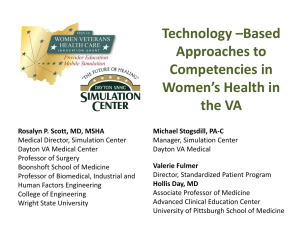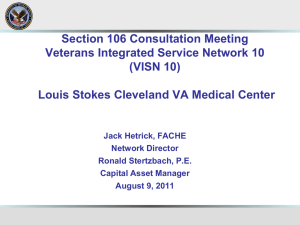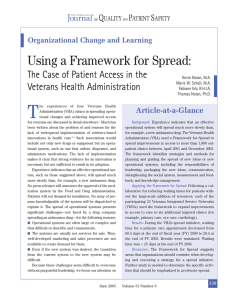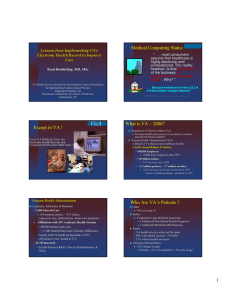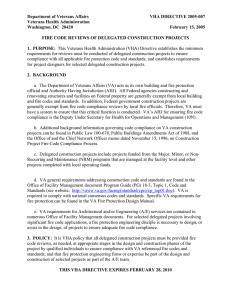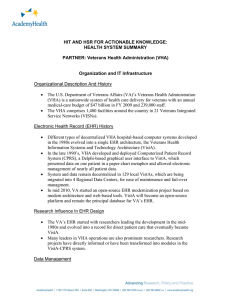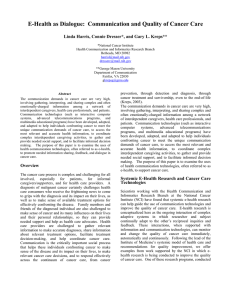Designing a Health Treatment Network:
advertisement
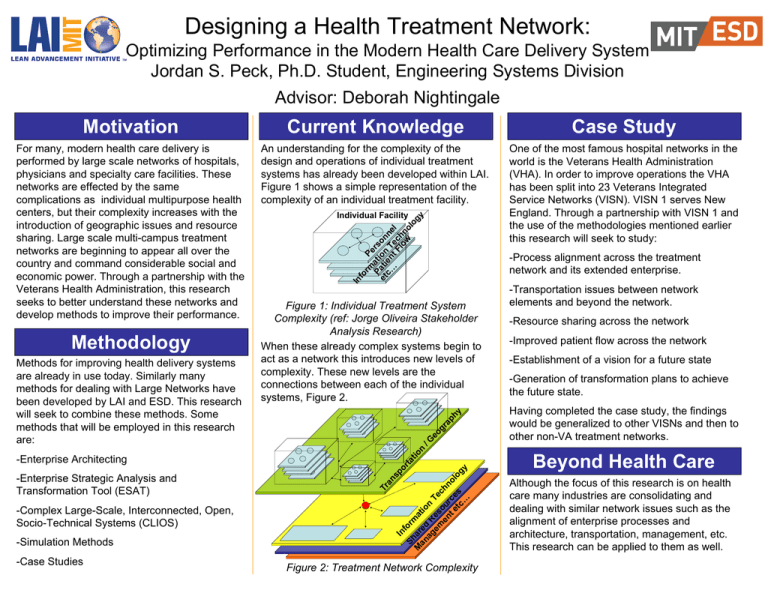
Designing a Health Treatment Network: Optimizing Performance in the Modern Health Care Delivery System Jordan S. Peck, Ph.D. Student, Engineering Systems Division Advisor: Deborah Nightingale Motivation Current Knowledge Case Study For many, modern health care delivery is performed by large scale networks of hospitals, physicians and specialty care facilities. These networks are effected by the same complications as individual multipurpose health centers, but their complexity increases with the introduction of geographic issues and resource sharing. Large scale multi-campus treatment networks are beginning to appear all over the country and command considerable social and economic power. Through a partnership with the Veterans Health Administration, this research seeks to better understand these networks and develop methods to improve their performance. An understanding for the complexity of the design and operations of individual treatment systems has already been developed within LAI. Figure 1 shows a simple representation of the complexity of an individual treatment facility. One of the most famous hospital networks in the world is the Veterans Health Administration (VHA). In order to improve operations the VHA has been split into 23 Veterans Integrated Service Networks (VISN). VISN 1 serves New England. Through a partnership with VISN 1 and the use of the methodologies mentioned earlier this research will seek to study: -Enterprise Architecting -Enterprise Strategic Analysis and Transformation Tool (ESAT) -Complex Large-Scale, Interconnected, Open, Socio-Technical Systems (CLIOS) -Simulation Methods -Case Studies og y In fo rm P e Pa ati rso et ti on n c… en T ne t F ec l lo hn w o l In ta Sh form tio M ar a n t an ed io /G ag R n eo em es Te c gr hn en ou ap t e rce ol hy og tc s … y Methods for improving health delivery systems are already in use today. Similarly many methods for dealing with Large Networks have been developed by LAI and ESD. This research will seek to combine these methods. Some methods that will be employed in this research are: Figure 1: Individual Treatment System Complexity (ref: Jorge Oliveira Stakeholder Analysis Research) When these already complex systems begin to act as a network this introduces new levels of complexity. These new levels are the connections between each of the individual systems, Figure 2. Tr an sp or Methodology Individual Facility Figure 2: Treatment Network Complexity -Process alignment across the treatment network and its extended enterprise. -Transportation issues between network elements and beyond the network. -Resource sharing across the network -Improved patient flow across the network -Establishment of a vision for a future state -Generation of transformation plans to achieve the future state. Having completed the case study, the findings would be generalized to other VISNs and then to other non-VA treatment networks. Beyond Health Care Although the focus of this research is on health care many industries are consolidating and dealing with similar network issues such as the alignment of enterprise processes and architecture, transportation, management, etc. This research can be applied to them as well.
